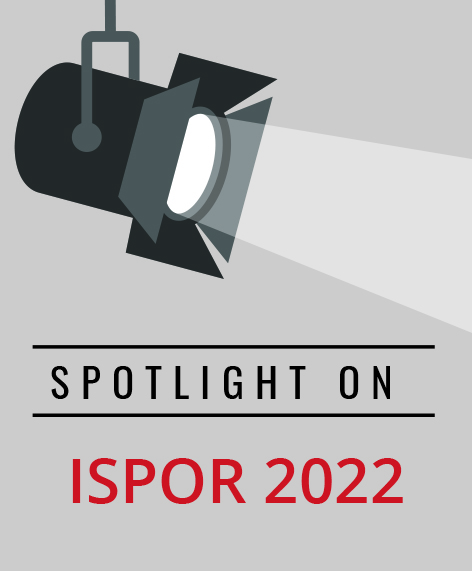Survival Skills for New Professionals
Enrique M Saldarriaga, MS, The Comparative Health Outcomes, Policy, and Economics (CHOICE) Institute, University of Washington, Seattle, USA; Mark Bounthanvong, PharmD, PhD, UCSD Skaggs School of Pharmacy & Pharmaceutical Sciences, San Diego, California, USA
Every level of instruction provides essential technical knowledge to build a career. However, there are skills that, while foundational to a successful career, are not necessarily part of the curriculum and range from effective communication to leadership and network development. In the session titled “Things They Didn't Teach in Grad School: Survival Skills for New Professionals,” Sanket Shah, MBBS, PhD (Novo Nordisk, USA) led a panel discussion that aimed to throw light on the most important skills for young professionals to effectively navigate and thrive in any work environment. The panel included Mark Bounthanvong, Blythe Adamson, Daniel Simmons, and Koen Degeling.
"It's important to be truthful with your limitations and areas of improvement so you can provide accurate and actionable information to potential mentors."
The first question for the panel was about how to pick a mentor and the difficulties that one might encounter in the process. Mark Bouthanbong, PharmD, PhD (UCSD Skaggs School of Pharmacy & Pharmaceutical Sciences, USA) initiated the conversation saying that one should always try to have multiple mentors that complement each other. He stressed the importance of being truthful with your limitations and areas of improvement so you can provide accurate and actionable information to potential mentors. This idea was echoed by Shah, who stated that the most critical element in a mentorship relationship is honesty. Daniel Simmons, PharmD, MS, RPH (AstraZeneca, USA) introduced the difference between formal and informal mentorship. The former occurs in the context of a graduate program or work, while the latter can happen even unknowingly, when sharing your struggles with other people and listening to their advice. This brings up the importance of reaching out to people who you would like to learn from. Koen Degeling, PhD (Lumen Value & Access, The Netherlands) went a step further and stated that the people you discuss your struggles with play a mentorship role, and that is another reason to be honest with your struggles and not be shy about approaching people whose advice you value.
On a related topic, an audience member asked the panel how to avoid being siloed in an area of specialization when it also becomes difficult to find mentors. Blythe Adamson, PhD, MPH (Flatiron Health, USA) and Simmons concur on the importance of identifying opportunities to apply one’s skill set outside your field, which has the potential to help other people’s challenges and create innovative solutions. Bounthavong indicated that when assessing the status of your career path it is essential to ask yourself “where are you in your career, where do you want to be in a few years, and if you are on the right track to achieve that.”
"Be honest with your struggles and not be shy about approaching people whose advice you value."
The audience presented the question of the advantages and disadvantages of getting a PhD. Having a panel of experts with different trajectories brough interesting answers. For Adamson, obtaining a PhD had to do with the realization that while every previous degree offered many opportunities there was always a metaphorical ceiling in the roles and activities that she could do, which was possible to overcome by pursuing a doctoral degree. On the other hand, Simmons evaluated the possibility of getting a PhD and decided against it because it was not going to provide the skills that he sought to develop his career. He offered an important message for people asking the same question: “A PhD is a long-time commitment and you have to ask yourself if it is the right commitment for you and how it would play on your skills and the career you want to build.” Bounthavong acknowledged that beyond the technical skill that he could acquire, he went back to school because he was looking for mentorship that allowed him to take his career to the next level. For Degeling, pursuing a PhD was an opportunity to increase his options for career direction.
"Follow scientific journalists whose work you are interested in, use Twitter and Google alerts to obtain a summary on latest publications, and look at the title of conference presentations to get a sense of the themes that are most important in the field."
Another question from the audience enquired about the tools the panelists use to keep up to date with the trends in the field. Simmons stressed the importance of ISPOR conferences for that purpose and shared that touring poster sessions was fundamental in building his interest in HEOR and an effective tool to stay informed about the latest methodological trends. Degeling indicated that trying to be up to date with all the latest advancements in the field is overwhelming and very difficult to attain. For that reason, he decided to narrow the scope to the topics that are most important to his interests and career. Adamson listed some tools that have proven effective for her: follow scientific journalists whose work you are interested in, use Twitter and Google alerts to obtain a summary on latest publications, and look at the title of conference presentations to get a sense of the themes that are most important in the field.
The final question was about networking opportunities for students living in countries with smaller HEOR communities than Europe or the United States. All panelists and the moderator recognized the importance of ISPOR, the ISPOR student network, and the regional chapters. Adamson and Degeling, both past ISPOR student network presidents, indicated that getting involved in the student network has several advantages not only for networking but for overall career development.

